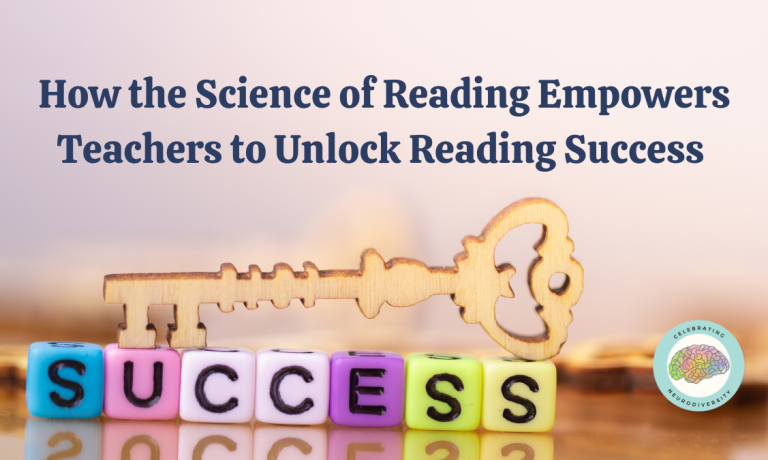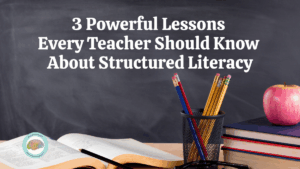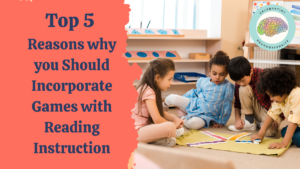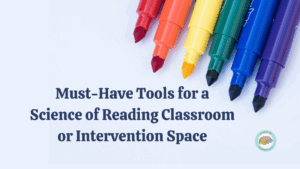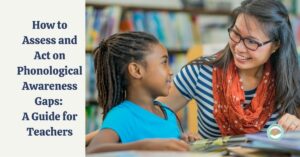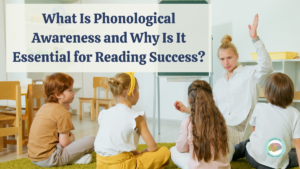You know your students need help with reading, and without the guidance of the science of reading, it can feel like there’s a missing piece—and you can’t quite put your finger on it. I know that feeling, because I’ve been there too. I taught to the curriculum but was at a loss when students weren’t progressing. It’s like they were missing something, and I couldn’t quite figure it out.
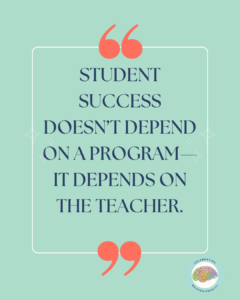
You too? What if the issue isn’t what you’re teaching but how it’s being taught and when? Too often, teachers are handed programs without the deeper knowledge they need to make reading instruction work for every student. That’s where understanding the science of reading comes in.
Why Teacher Knowledge Is the Key
Curriculums can provide structure, but they can’t replace a teacher’s understanding of how reading actually works. Teaching reading needs to be about knowing the why and how behind effective strategies. Here’s why your knowledge is the most powerful tool in the classroom:
We have a huge body of research that gives us the knowledge we need to teach reading effectively. The science of reading provides a clear roadmap, showing how the brain processes and stores words. It explains how children move from decoding letters and sounds to automatic word recognition and comprehension. Understanding these processes helps teachers guide students through each step of reading development with strategies that align with how the brain learns best.
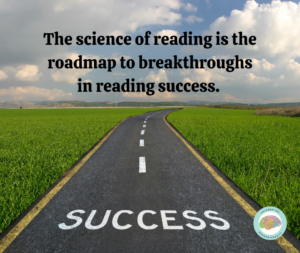
It’s Rooted in Brain Science
We have a huge body of research that gives us the knowledge we need to teach reading effectively. The science of reading provides a clear roadmap, showing how the brain processes and stores words. It explains how children move from decoding letters and sounds to automatic word recognition and comprehension. Understanding these processes helps teachers guide students through each step of reading development with strategies that align with how the brain learns best.
It Guides Instructional Decisions
When you have a solid understanding of the science of reading, you know how to adjust instruction to meet your students where they are. This knowledge lets you interpret assessment data with confidence, pinpoint exactly where a student is struggling, and plan next steps with purpose. Instead of guessing, you’re making informed decisions about interventions, pacing, and skill development—ensuring every instructional moment counts.
It Supports All Students
With the right knowledge, you’re no longer limited by a program. You can adapt your teaching to support a wide range of learners, from those struggling with basic phonics to those ready for advanced comprehension. This flexibility means you can work effectively within any curriculum your school adopts while still meeting the unique needs of your students. By bridging gaps, building confidence, and creating an inclusive learning environment, you’ll ensure every student has the opportunity to succeed.
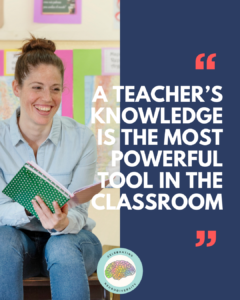
The Transformation That Happens with Knowledge
When teachers deeply understand the science of reading, everything changes—for both them and their students. Here’s what becomes possible:
Confidence in Instruction
You’ll feel equipped to make informed decisions and adjust strategies as needed.
Breakthroughs for Students
Struggling readers will finally experience the progress they deserve because your instruction is tailored to their needs.
Time-Saving Efficiency
Lessons become streamlined and effective, reducing prep time and frustration.
Focus on Student Growth
You’ll stop guessing and start teaching with purpose, leading to measurable improvements in reading success.
The key takeaway? Student success doesn’t depend on the program—it depends on YOU, the teacher! Let’s make sure you have the tools and knowledge you need to unlock every student’s reading potential.
Explore More
If you’re ready to dive deeper into effective reading strategies, my Free Resource Library is a great place to start. It’s packed with activities, tools, and templates designed to make implementing the science of reading both practical and enjoyable. Click here to access the library.
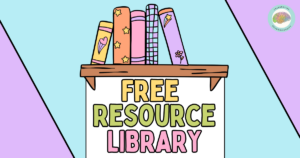
You might also find these blog posts helpful:
Step by Step Guide to Structured Literacy Lesson Plans: Inspired by UFLI Foundations
Mastering Reading Assessments: How to Identify and Provide Reading Support
Unlock the Power of Word Chaining for Effective Literacy Instruction

